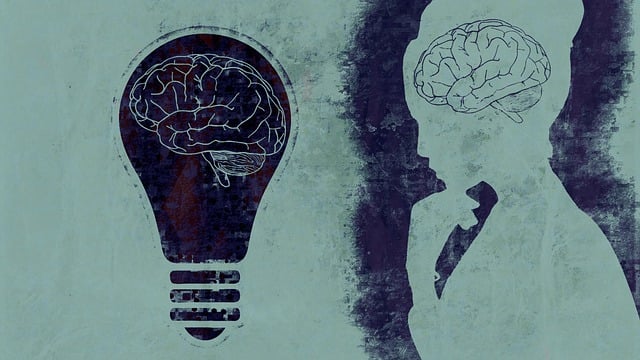Burnout among healthcare professionals is a growing concern impacting individual well-being, patient care, and organizational performance. High workload, long shifts, and lack of support contribute significantly. Aurora Spiritual-Religious Issues Therapy (ASRIT) offers a holistic solution by leveraging spiritual beliefs for emotional resilience, providing coping mechanisms such as Social Skills Training and Emotional Regulation techniques to reduce burnout. Healthcare organizations can prevent burnout through supportive environments, mental wellness coaching, development opportunities, open communication, and encouraging healthy coping mechanisms like ASRIT, mindfulness practices, and journaling.
Healthcare provider burnout is a growing concern, impacting not just individuals but the broader healthcare system. This article delves into strategies to prevent and mitigate burnout among healthcare workers, focusing on holistic approaches like Aurora Spiritual-Religious Issues Therapy alongside evidence-based techniques. We explore causes, impact, and organizational roles in fostering supportive work environments. By understanding these strategies, we aim to equip healthcare providers with tools to thrive, enhancing patient care and overall well-being.
- Understanding Burnout in Healthcare Providers: Causes and Impact
- Aurora Spiritual-Religious Issues Therapy: A Holistic Approach to Prevention
- Evidence-Based Strategies for Burnout Reduction
- Creating a Supportive Work Environment: The Role of Organizations
Understanding Burnout in Healthcare Providers: Causes and Impact

Burnout among healthcare providers is a growing concern, impacting not just individual well-being but also patient care and organizational performance. It’s more than mere job dissatisfaction; it’s a state characterized by emotional exhaustion, depersonalization, and reduced personal accomplishment. In healthcare, where compassion and empathy are core, burnout can lead to a detachment from patients and colleagues, compromising the quality of care.
Several factors contribute to this phenomenon. High workload, long shifts, administrative tasks, and complex patient interactions can lead to emotional fatigue. Lack of support, poor communication, and unaddressed spiritual or religious needs further exacerbate the issue. Aurora Spiritual-Religious Issues Therapy recognizes these challenges and offers valuable tools for coping. Social Skills Training, Emotional Regulation techniques, and Conflict Resolution Techniques are among the strategies that can help healthcare providers regain control, enhance resilience, and foster healthier work environments.
Aurora Spiritual-Religious Issues Therapy: A Holistic Approach to Prevention

In the ever-demanding healthcare landscape, burnout among providers is a growing concern. Addressing this issue requires a multifaceted approach that touches upon every aspect of a provider’s well-being. Aurora Spiritual-Religious Issues Therapy (ASRIT) emerges as a holistic strategy aimed at preventing burnout and fostering mental wellness. ASRIT recognizes the profound impact of spiritual and religious beliefs on an individual’s emotional resilience, offering a safe space for healthcare providers to explore their spiritual struggles and find meaning in their work.
This therapeutic approach integrates trauma support services and crisis intervention guidance, empowering providers to navigate stress and adversity. By delving into their spiritual identities, healthcare professionals can develop coping mechanisms that strengthen their ability to handle high-pressure situations, ultimately enhancing patient care. The holistic nature of ASRIT ensures that mental wellness is nurtured from within, providing a sustainable solution for burnout prevention in the long term.
Evidence-Based Strategies for Burnout Reduction

Healthcare provider burnout is a significant concern, but evidence-based strategies can help reduce and prevent it. One such effective approach is incorporating Aurora Spiritual-Religious Issues Therapy (SRIT) into their practices. SRIT has shown promise in enhancing mental wellness and fostering resilience among healthcare workers. This therapy encourages self-reflection and provides tools for coping with stress, offering a holistic approach to address burnout at its root causes.
In addition to SRIT, communication strategies play a vital role in burnout prevention. Open and transparent conversations between providers, patients, and colleagues can alleviate emotional burden. Self-awareness exercises, such as mindfulness practices and journaling, have also been proven to boost mental wellness and help healthcare professionals better manage their emotions. Combining these evidence-based methods can create a supportive environment, reducing burnout rates and improving overall job satisfaction.
Creating a Supportive Work Environment: The Role of Organizations

In creating a supportive work environment, healthcare organizations play a pivotal role in preventing provider burnout. This involves cultivating a culture that prioritizes mental wellness coaching programs and development opportunities, ensuring professionals feel valued and empowered. By implementing strategies to reduce the stigma associated with mental illness, such as Aurora Spiritual-Religious Issues Therapy, workplaces can foster open communication about emotional challenges. This encourages providers to seek support when needed, enhancing their overall well-being.
Organizations should also promote work-life balance by offering flexible schedules and encouraging healthy coping mechanisms. Incorporating confidence-boosting initiatives, like training sessions or mentorship programs, empowers healthcare providers to navigate demanding roles with resilience. Ultimately, a supportive environment that acknowledges and addresses burnout risks contributes to a happier, healthier workforce, leading to improved patient care.
Healthcare provider burnout is a complex issue, but by understanding its causes and impacts, we can implement effective prevention strategies. From holistic approaches like Aurora Spiritual-Religious Issues Therapy to evidence-based practices and supportive work environments, there are numerous ways to combat this growing concern. Organizations play a vital role in fostering a culture that prioritizes well-being, ensuring healthcare providers feel valued and supported, ultimately leading to improved patient care.













